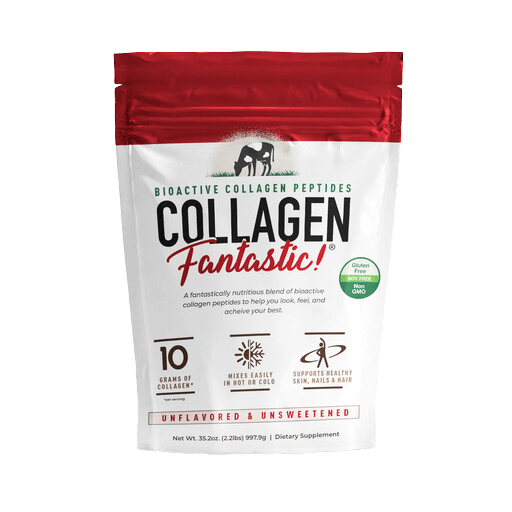Key Takeaways
-
Motivation gets you started — discipline keeps you going.
-
Relying on “feeling inspired” is unsustainable; consistency is built through structure, habits, and environment.
-
Discipline doesn’t mean rigidity — it means learning to act even when you don’t feel like it.
-
Your body and mind need energy, recovery, and nutrition to maintain consistency.
-
Fantastic Nutrition Whey Protein, Collagen Fantastic, and Creatine Fantastic help support the physical side of discipline — fueling performance, recovery, and focus when motivation fades.
Introduction: When Motivation Disappears
Motivation is powerful — until it isn’t.
You know that first-week buzz when you start something new? You feel unstoppable. The workouts are exciting, the meals are on point, and every day feels like momentum.
Then life happens. Work gets hectic. Sleep shortens. Progress slows.
That spark fades — and suddenly, the thing that once felt easy now feels like work.
That’s where most people stop. Not because they lack the ability, but because they mistake the loss of motivation for the loss of purpose.
The truth? You don’t need constant motivation. You need a plan, a rhythm, and a mindset that makes consistency automatic — even when you’re not inspired.
That’s discipline.
The Difference Between Motivation and Discipline
Motivation is emotional. It’s fueled by excitement, novelty, and quick wins. But it’s also unpredictable — the moment challenges arise, it disappears.
Discipline is logical. It’s a decision made in advance: I’ll show up whether I feel like it or not.
Think of it this way:
-
Motivation asks, “Do I want to?”
-
Discipline says, “I will.”
When motivation fades — and it always will — discipline steps in to bridge the gap between your goals and your actions.
Why Motivation Alone Isn’t Enough
There’s nothing wrong with being motivated — it’s just not a reliable system. Relying on motivation alone creates inconsistency, guilt, and burnout.
Motivation fades because:
-
It depends on emotion.
-
It thrives on novelty (which fades fast).
-
It struggles under stress and fatigue.
That’s why people who train for years or maintain healthy habits long-term don’t rely on motivation — they rely on systems.
Discipline is the quiet repetition that builds real progress — and it’s available to anyone willing to practice it.
How to Build Discipline When You Don’t Feel Motivated
1. Start Smaller Than You Think
Discipline thrives on achievability. Trying to overhaul your life overnight sets you up to fail.
Instead, scale your goals down to something you can definitely do — and repeat.
-
Can’t manage an hour at the gym? Do 20 minutes.
-
Don’t have energy for a full meal prep? Make one better meal.
-
Tired after work? Stretch for five minutes.
Discipline is about showing up, not showing off.
Over time, those small wins compound into habits — and habits become identity.
2. Build Systems, Not Willpower
Discipline doesn’t depend on mental strength; it depends on design.
If you’re constantly relying on willpower, your system is broken.
Your environment should make success easy — not a battle.
Examples:
-
Keep your shaker bottle and Whey Protein visible to remind you to refuel after workouts.
-
Block out a recurring 30-minute window on your calendar for movement — treat it like a meeting with yourself.
-
Pair your morning coffee with Collagen Fantastic — simple ritual, lasting consistency.
Your surroundings shape your habits more than your emotions do.
3. Connect to Your “Why”
When excitement disappears, purpose takes over.
Ask yourself:
-
Why does this matter to me long-term?
-
What’s the bigger picture beyond today’s workout or meal?
-
Who do I want to become through this process?
When your actions align with identity, discipline feels like self-respect — not sacrifice.
4. Plan for Boredom and Imperfection
Every goal eventually becomes routine. The same meals, the same gym, the same daily rhythm — that’s where discipline is tested.
The mistake most people make? Mistaking boredom for failure.
Stability isn’t a setback — it’s proof you’re consistent.
Remind yourself: “This isn’t a rut. It’s the rhythm of progress.”
And when you fall off (because everyone does), respond with curiosity, not guilt.
Ask what interrupted your system, and adjust. Then get back to it.
5. Fuel for Consistency
It’s impossible to stay disciplined when your body is under-fueled. Energy, mood, and motivation all depend on balanced nutrition.
-
Protein stabilizes appetite and supports recovery — preventing the fatigue that derails consistency.
-
Creatine maintains muscle energy and focus, especially during high-demand training or stressful weeks.
-
Collagen keeps your joints and tissues strong, reducing soreness and keeping your routine sustainable.
Consistency starts with energy — and energy comes from fueling, not depriving.
6. Celebrate Evidence, Not Emotion
When motivation fades, track proof, not feelings.
Keep a log of every workout, meal, or milestone — no matter how small. You’re building a record of reliability.
Over time, those notes become reminders that you don’t need motivation — you’ve built something stronger: self-trust.
That’s what discipline is — trust built through evidence.
The Psychology of Sustainable Progress
Discipline rewires your brain through repetition and reward.
Every time you follow through — even when you don’t want to — your brain releases dopamine, reinforcing that behavior. That chemical reinforcement makes it easier to repeat next time.
Over weeks and months, that repetition becomes identity:
-
You’re not “trying to work out.” You’re someone who moves.
-
You’re not “trying to eat better.” You’re someone who fuels with intention.
That identity shift is where long-term confidence lives.
How to Get Back on Track After Falling Off
Everyone loses consistency sometimes — that’s part of being human. The key isn’t avoiding slips; it’s recovering faster.
1. Remove the Guilt
Guilt doesn’t create action — structure does. Don’t dwell on what you missed; focus on what you can do next.
2. Start with One Small Win
One healthy meal, one walk, one glass of water, one scoop of protein — momentum starts tiny.
3. Adjust, Don’t Abandon
If your plan isn’t working, change the system, not the goal. Discipline means flexibility within commitment.
The Long Game of Discipline
Discipline isn’t about perfection; it’s about direction.
It’s not a punishment for lack of motivation — it’s a safeguard against losing momentum. When you make effort automatic, motivation becomes optional.
In time, discipline stops feeling like effort. It becomes identity.
You start to think, This is just who I am now.
That’s the quiet confidence of consistency — the kind that lasts long after the excitement fades.
Frequently Asked Questions
1. How do I stay consistent when I lose motivation?
Focus on systems over feelings. Simplify your routine, anchor it to your schedule, and keep showing up. Progress follows repetition, not inspiration.
2. How long does it take to build discipline?
Most habits solidify within 6–8 weeks of consistent practice. Discipline grows as you accumulate small wins — it’s a muscle that strengthens with use.
3. What if I just don’t feel like it?
Do the smallest version possible. Showing up for 10 minutes reinforces the habit loop, keeping momentum alive even on low-energy days.
4. How does nutrition affect discipline?
Balanced energy and recovery reduce fatigue and cravings, which are major barriers to consistency.
The Bottom Line
Motivation gets you started — discipline gets you results.
The real secret to progress isn’t working harder when you feel inspired; it’s learning to show up when you don’t. That’s where strength, resilience, and confidence are built.
Feed your body, protect your energy, and trust your systems. Motivation may fade — but discipline lasts











